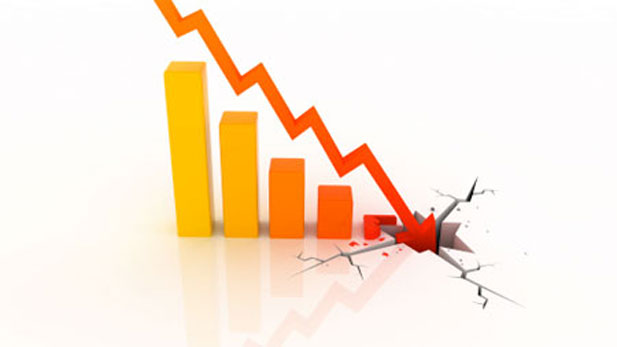Everyone loves a good disaster story. From shifting tectonic plates to the zombie apocalypse, it is great fun to spin a story of impending disaster, including the impending crash of the technology sector and its stocks.
I’ve written that story myself, in various accounting blogs since the crash of 2000.
The case for an impending tech crash was laid out in USA Today on February 5, based mostly on the Linked-In’s 44 percent value loss on that date. The loss is somewhat confusing, because the truth is that Linked-In has had a good quarter, and has some substantial victories in the social media space. However, the company reported that its revenues would be 6 percent less than anticipated for the quarter, and the stock markets punished it severely.
But Linked-in is just one factor that analysts have cited to be nervous about an impending tech crash. Others factors they cite:
- The 426 major tech stocks tracked by the Russell 3000 index have lost $529 billion in value this year alone. That’s an average drop of 14 percent, according to a USA TODAY analysis of data from S&P Capital IQ. For comparison, the Standard and Poor’s index of stocks (S&P 500) has dropped only 8 percent in the same period.
- If such crashes are cyclical, we are due for one. That is, we had prior crashes in 2000 and again in 2008. That makes 2016 a prime candidate for the cycle.
- It’s not just Linked-In suffering from the loss of a single bad day. This year, according to USA Today, the market cap lost by major tech firms include $62 billion by Apple; $55 billion by Alphabet, the parent company of Google; $42 billion by Microsoft; $25 billion by Intel; and less amounts by other companies – including Cisco Systems, IBM, Master Card, Visa, SalesForce.Com and Linked-In.
- Virtually all of the successful IPOs of the latest tech boom are now trading well below their opening price, with Twitter and Groupon performing the worst.
- Analysts also note that with Facebook and Google dominating the Internet ad revenue segment, other companies whose business plan rely on ad revenue may be deep trouble even if they do not yet recognize it.
These are not particularly good signs, but do they mark the equivalent of the crash of 2000, or even the one in 2008. Or is this just a correction similar to that going on in other segments of the stock market? Consider these factors:
- Tech stocks are among the most speculative and high-risk of any in the stock markets. When investors get nervous about stocks as an investment, they will dump the highest risk stocks and retain, if anything, the established, blue-chip stocks. While the conventional wisdom is that the industry is “recession-proof,” it has not proven to be so in the past. Eventually, bad business plans, hyper-inflated valuations and silly products will take down almost any tech company.
- The Federal Reserve orchestrated this latest slump toward recession by first holding internet rates at absurdly low levels to stimulate consumer purchasing, and then raising the rate when it was apparent that it was unsustainable. When interest rates are very low, investors have no place to put their money but stocks if they want to see any semblance of a return on investment. As the interest rates rise, investors will move at least some of their money out of stocks to better diversify their portfolios.
- Are we there yet? The nation is not, in spite of election-year rhetoric, in a formal recession or even a bear market for tech stocks. Either of these could happen, but are not a certainty yet. And the fundamentals are nowhere near the levels they hit in the past two tech bubble meltdowns.
Is there going to be a tech crash? If I could answer that question, I would be on a beach somewhere, sun-burning by day and singing bad karaoke by night. I do know for certain that I lost my shirt in the Internet bubbles of 2000 and 2008, and even I would no longer take stock advice from me.
But I do believe it pays to be cautious. There are several actions you can take to help protect your interests and those of your clients:
- Watch for increases in data theft, particularly among former employees. In 2008, when the 37 percent drop in stock values caused massive layoffs in the tech sector, the unemployed tech people had the skills to steal data from their former employees in order to pay the rent. Same thing could happen now,
- Watch for privacy breaches that could signal identity theft. The tech sector, and e-commerce in particular, are awash in gimmicks to steal your personal data and that of your clients to sell on the Internet.
- Have your tech client revisit their business plans immediately to validate assumptions and correct variations in sales and earnings.
- Wealth management clients should have their portfolio rebalanced, keeping in mind the “hidden costs” of doing so in terms of taxes, your time to effect the rebalancing, and the transactions costs of buying and selling assets as you rebalance.
- Get a finance professional involved in insuring the portfolio against losses. There are specific strategies to offset losses, such as futures, options and order management strategies.
President Obama, in a press conference on February 6 of this year, stated that the US economy remains the strongest in the world, and that there are no immediate prospects for a recession. Whether this is true, or remains true, will be seen as the year unfolds. There are, however, enough warning flags to warrant attention.
Thanks for reading CPA Practice Advisor!
Subscribe Already registered? Log In
Need more information? Read the FAQs
Tags: Accounting, Financial Planning, Technology





